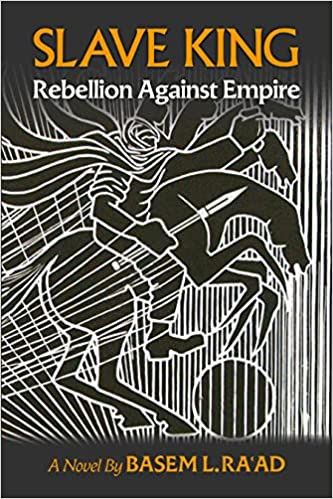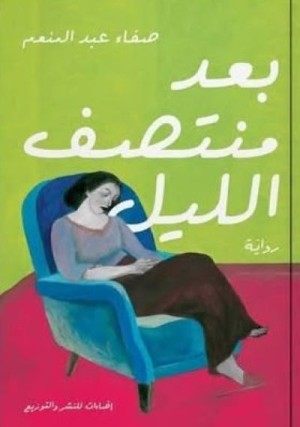Slave King: Rebels Against Empire
In thirty chapters, the narrative develops the incredible story of how a boy (Younis/Eunus/Euno) captured as a slave in Afamia, Syria challenges the Roman Empire in Sicily, circa 140-132 BCE. The chapters dramatize the circumstance of his capture, his experiences as a tutor, the growth of his prophetic and magical abilities, events that fomented the uprising (cruelties, rapes, crucifixions), the role of female characters, connections to other historical events (e.g., the destruction of Carthage), as well as scenes of an exorcism, an ancient marriage ceremony, a play performed outside a besieged city, and several battles against the Roman legions. An epilogue by an imagined contemporary narrator, who explains why she wrote the novel, ends the work. In the chapters and epilogue, while using ancient sources to some extent (sparse and biased as they are), the work departs from them to resolve contradictions, fill in gaps, and present an alternative narrative of historical and cultural issues. It's intended to remedy the neglect of this story in both ancient and modern sources, reverse the demonization explicit and implicit in them, and remedy the imbalance in the dominant constructs. It promotes the event as significant, certainly just as important as (if not more than) the Spartacus rebellion seven decades afterwards, or others that are commonly recounted. A significant aspect of this revolt comes from the fact that Younis was able to forge a coalition of slaves, farmers and herders that defeated Roman armies and established an independent entity on more egalitarian principles. The novel also touches on a range of topics, such as prophecy, magic, languages, the construct of Western civilization, representation of regional cultures, customs, and mythologies. An idealized statue of this rebel stands today in Enna, Sicily, along with an inscription that seems designed to appeal to tourists, yet Younis' rebellion contradicts the dominant notions promoted in Italy and throughout the West, especially the identification with imperial Rome. This novel is intended to remedy his legacy. A fictionalised account of a slave rebellion in Roman Sicilia more than sixty years before Spartacus, it tells the story of the slave Younis from Afamia (now in Syria), a mystic and seer who led a great uprising sustained much longer than Spartacus'.
Comments from the back cover:
A fictionalised account of a slave rebellion in Roman Sicilia more than sixty years before Spartacus, it tells the story of the slave Younis from Afamia (now in Syria), a mystic and seer who led a great uprising sustained much longer than Spartacus’s. As with Messinian rebellion against Spartan oppression centuries earlier, the West has been slow to take such events seriously and reinstate their presence in popular culture as expressions of human spirituality and resistance. The role of seers as leaders is reminiscent of Ayi Kwei Armah's The Healers on ancient Africa. This book is a fascinating and brilliant telling of popular struggle. It is a minor classic.
— Michael Neocosmos, Emeritus Professor in Humanities, Rhodes University, South Africa, author of Thinking Freedom; Towards a theory of emancipatory politics
I highly recommend Basem Ra’ad’s compelling and deeply researched historical novel about the fire-breathing Syrian slave who challenged Roman might in the second century BCE, seeking independence for his thousands of followers. This little-known story of resistance deserves wide attention ... an amazing and important story.
— Adrienne Mayor, Department of Classics, Stanford University, author, The Poison King: The Life and Legend of Mithradates, Rome’s Deadliest Enemy
What Basem L. Ra’ad has done in this remarkable novel about slave uprisings is to demonstrate how ‘the history of all hitherto existing society is the history of class struggles.’ He shows why the dominant discourse needs to be revised. A moving story that casts light on many strifes in our times.
— Tariq Mehmood, author, Song of Gulzarina, Associate Professor, American University of Beirut
Slave King disrupts two millennia of malign stories about one of antiquity's original slave revolts. Not cannibals, not demons, but slaves, farmers and herdsmen created a kingdom of equality and compassion. In vivid prose and deep knowledge, Ra’ad re-imagines freedom emerging from Mediterranean multicultural shores. It is a profound re-creation of history in thrilling fiction.
—Hilton Obenzinger, author of Witness 2017-2020 and American Palestine: Melville, Twain, and the Holy Land Mania
مزيد من القراءة
فعاليات

العربية السعيدة في بيت يكن
إبريل 15, 2025
العربية السعيدة، لتوركل هانسن وترجمة سوسن كردوش قس...

الأديب: رؤية ومسيرة ... حوار مع إيلان بابيه عبر زووم
مارس 15, 2025
تمت هذه الحلقة في 15 مارس 2025 ، تستطيع الان مشاهد...

مسافر يبحث عن ماء
فبراير 17, 2025
تقيم نقابة اتحاد كتاب مصرشعبة أدب الرحلات تحت رعاي...

مناقشة رواية النباتية لهان كانج الحاصلة على جائزة نوبل للأدب
نوفمبر 08, 2024
تمت منااقشة رواية النباتية يوم الجمعة 8 نوفمبر 202...




